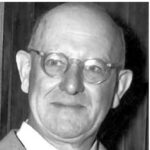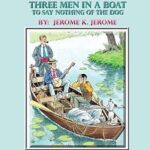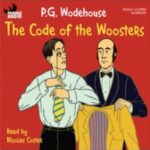Clicking on the following links or images will take you to the various humor & satire works covered in this section:
Commentary:
In the world of humorous fiction, there is P. G. Wodehouse and then there is everyone else. Wodehouse stands head and shoulders above the rest, because of his unique style which combines great plots, interesting characters and most importantly an incredible command of the English language. He fashioned his own unmistakable brand of humor, and his writing never fails to bring a smile to the reader’s lips. That’s why was aptly described by Evelyn Waugh as ‘English literature’s performing flea’.
Wodehouse created an amazing universe of comic characters, most of them circulating within their own ‘galaxies’ but with an occasional crossover here and there (usually only for the minor characters). Among his best-known characters are: Jeeves and Bertie Wooster, the Blandings Castle ensemble, Psmith, Mr. Mulliner, Uncle Fred and Monty Bodkin.
Jeeves is perhaps the most famous Wodehouse character, being known even to many non-Wodehouse fans as a ‘gentlemen’s gentleman’. Jeeves and his employer, the dull-witted and accident-prone Bertie Wooster, appeared in many novels and short stories with a wide cast of supporting characters including Aunt Agatha, Aunt Dahlia, Anatole, Gussie Fink-Nottle, Sir Roderick Glossop, Sir Watkyn Bassett and Roderick Spode.
The popularity of the Blandings Castle book series starring Lord Emsworth and a wide cast of supporting characters, rivals that of the Jeeves series. The principal characters include many members of Lord Emsworth’s clan such as his son Freddie Threepwood, his sister Constance Keeble and his brother Galahad Threepwood, as well as his butler Beach, his pig the Empress of Blandings, his sometime secretary Rupert Baxter and the obnoxious Duke of Dunstable, a frequent visitor to Blandings. Interestingly, Blandings is also where many of Wodehouse’s worlds intersected, with visits from crossover characters such as Psmith, Uncle Fred, Monty Bodkin and many other minor characters.
Among the other Wodehouse creations, my favorite is the irrepressible and unflappable Psmith. All of the Psmith books are delightful and memorable, and it’s a shame that Wodehouse featured Psmith in only four novels and then stopped writing about him. The only consolation, perhaps, is that Wodehouse later created a sort of ‘elderly Psmith’ in the form of Uncle Fred, more formally known as Lord Ickenham. However, the four Psmith novels are unmatchable, and all of them are classified as GEMs in my list of Wodehouse novels.
Another of my Wodehouse favorites is Mr. Mulliner, with his unending stories about his relatives told to a patient (but not necessarily interested) audience at a bar named the Anglers’ Rest. Mr. Mulliner’s stories are usually in the form of tall tales about his innumerable cousins, nieces, and nephews. These short stories should all be taken as being tongue-in-cheek, but they are nevertheless highly enjoyable and rarely fail to brighten one’s day.
There are not many authors of humorous fiction who can match Wodehouse, but I have tried to compile lists of notable humorous/satirical works by other authors. Some of these works are less light-hearted than Wodehouse’s works and more in the line of satire or dark humor. There is a fine line between comedy and tragedy, and in some stories (especially those which are satirical) it is hard to distinguish one from the other. In general, I have tried to select stories which have at least some element of humor, dark or otherwise.
Among the best practitioners of the art of comedy writing (besides Wodehouse) were Mark Twain, Saki, Ring Lardner, Richard Gordon, Henry Cecil and Douglas Adams. Some of them specialized in novels about a particular profession (Gordon for medicine and Cecil for law), while others specialized in short stories (Saki and Lardner). And of course Mark Twain is recognized as one of the greatest American humorists ever: I have selected some of his comic novels and short stories, though not all of his fiction was written in a humorous vein.
The entire collection of novels and short stories for all the various authors put together is a lot smaller than the corresponding collection for P. G. Wodehouse, which is a testament to the latter’s virtuosity in the field of comic fiction.





